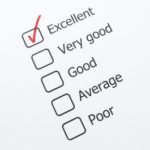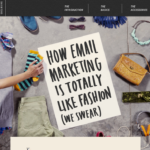 Imagine you’re planning a holiday. You’ve picked the destination and booked the flight, but haven’t decided on the accommodation. How do you work out where to stay? You might ask friends or go for the well-known options. But most likely, you’ll head online to see what others say. And it’s likely you’ll be swayed by comments from people who have visited your destination and shared their experience. But can you trust these recommendations?
Imagine you’re planning a holiday. You’ve picked the destination and booked the flight, but haven’t decided on the accommodation. How do you work out where to stay? You might ask friends or go for the well-known options. But most likely, you’ll head online to see what others say. And it’s likely you’ll be swayed by comments from people who have visited your destination and shared their experience. But can you trust these recommendations?
Reviews of hotels, books, films, and restaurants increasingly drive consumer decisions. But research suggests up to a third of user reviews are fake – written by stooges, some of whom are paid.
I must say, I read reviews looking for insider tips but know many are fake. I also reckon I can spot a fake one. It’s descriptions are too effusive. Or there’s something inauthentic about it. My assessment is hardly scientific. I go on my gut feeling. And who knows? I could be being totally duped.
In a paper titled “Estimating the Prevalence of Deception in Online Review Communities” presented at a conference in France earlier this year, researchers gave the example of these two reviews. Can you pick the fake one?
- “My husband and I stayed in the Hilton Chicago and had a very nice stay! The rooms were large and comfortable. The view of Lake Michigan from our room was gorgeous. Room service was really good and quick, eating in the room looking at that view, awesome! The pool was really nice but we didn’t get a chance to use it. Great location for all of the downtown Chicago attractions such as theaters and museums. Very friendly staff and knowledgable, you cant go wrong staying here.”
- “We loved the hotel. When I see other posts about it being shabby I can’t for the life of me figure out what they are talking about. Rooms were large with TWO bathrooms, lobby was fabulous, pool was large with two hot tubs and huge gym, staff was courteous. For us, the location was great across the street from Grant Park with a great view of Buckingham Fountain and close to all the museums and theatres. I’m sure others would rather be north of the river closer to the Magnificent Mile but we enjoyed the quieter and more scenic location. Got it for $105 on Hotwire. What a bargain for such a nice hotel.”
The first review is deceptive opinion spam. This paper also notes “…humans
have a difficult time identifying deceptive messages from cues alone…” We’re all vulnerable.
What we can’t deny is the power of a positive review. Researchers from the University of California, Berkeley looked at ratings of 300 restaurants in San Francisco. They found when a restaurant’s rating on Yelp improved by just half a star, the likelihood of its 7pm bookings selling out went up from 30 per cent to 49 per cent.
Negative reviews also impact on consumer behavior.
Fake book reviews came under the spotlight in a New York Times article. It states “The Federal Trade Commission has issued guidelines stating that all online endorsements need to make clear when there is a financial relationship, but enforcement has been minimal.”
So, if fake reviews have power and are difficult to spot, should you play the game?
Internet marketing practitioners don’t recommend paying for fake reviews. The main reason? If your dark practices are discovered, consumers will dump you.
As one New York Times readers says, “I urge readers to use their judgment when reading reviews. If there are only one or two reviews of a book, and they’re full of laudatory adjectives without giving you any reason to believe that the reader actually read the book (or the whole book), then of course be suspect. But if there are twenty reviews, and a number of them are in-depth, highly informative and substantiate opinions with examples from the book, there’s a good chance that most of these reviews are trustworthy.”
Put your energies into creating the best service or product you can, and they will come.
Photo Credit: http://www.sxc.hu/photo/590976




